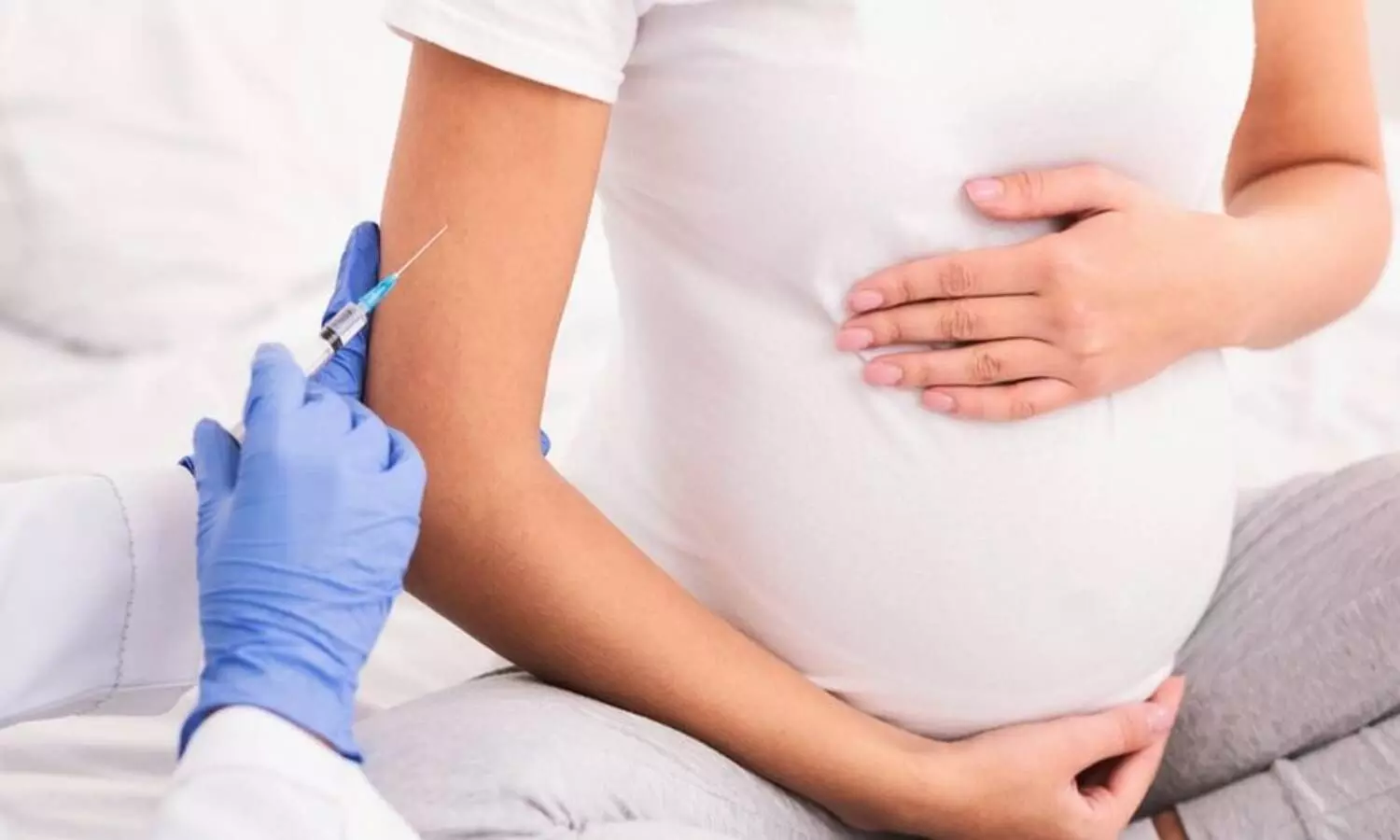Explained: Can pregnant women take COVID-19 jab?
Pregnant women with COVID-19 are at an increased risk for severe illness and death. They experience preterm birth and pregnancy loss more frequently than non-COVID patients.
By Sumit Jha
Hyderabad: Pregnant women with COVID-19 are at an increased risk for severe illness and death. They experience preterm birth and pregnancy loss more frequently than non-COVID patients.
Is vaccination safe for pregnant women?
Although transmission of the SARS-CoV-2 virus across the placenta is rare, pregnant people are at an increased risk for severe COVID-19, which is why many experts and scientific societies have argued that vaccination is a must during pregnancy.
According to a study by scientists at the US Centers for Disease Control and Prevention published in the New England Journal of Medicine on April 21, there are no increased risks of severe side effects or adverse pregnancy outcomes from either the Moderna or Pfizer/BioNTech COVID-19 vaccines currently authorized for emergency use in the US.
The study examined self-reported symptoms of 35,691 people aged 16 to 54 who were pregnant when they received their COVID-19 vaccination and who participated via a smartphone-based reporting system called v-safe. It also analyzed maternal and neonatal outcomes from nearly 3,600 participants who opted into an additional, telephone-based registry that collects detailed information about their pregnancies.
The participants were slightly more likely than v-safe users who did not indicate they were pregnant to report injection-site pain, but less likely to report fever, chills, or aches. And among the 827 birth outcomes available, the rates of pregnancy loss, preterm birth, and small size were "similar to incidences reported in studies involving pregnant women that were conducted before the COVID-19 pandemic," the authors write in their report.
The study has several limitations, and the authors noted that additional research is needed, especially for vaccinations that occur early on in pregnancy. In addition to the reliance on self-reporting and the small number of pregnancies examined, the study only included vaccinations that occurred between December and the end of February, which were largely among healthcare workers and overwhelmingly included people in their second trimester or later.
Vaccines for Pregnant Moms May Protect Newborns
For the first time, doctors report that SARS-CoV-2 antibodies from a vaccinated mother can cross the placenta, pointing to a likely benefit for her fetus.
A study published recently in The American Journal of Obstetrics and Gynecology shows the vaccines are not only safe and effective for pregnant and breastfeeding women, they may also offer some protection for their babies.
"COVID-19 mRNA vaccines generated robust humoral immunity in pregnant and lactating women, with immunogenicity and reactogenicity similar to that observed in non-pregnant women. Vaccine-induced immune responses were significantly greater than the response to natural infection. Immune transfer to neonates occurred via the placenta and breast milk," said the study.
Another research published in medRxiv report that SARS-CoV-2 antibodies from a vaccinated mother can cross the placenta, pointing to a likely benefit for her fetus.
"It validates that mothers can be vaccinated during pregnancy and can provide some of that level of immunity to their unborn child," said Chad Rudnick, one of the authors of the research.
He documented the experience of a front-line healthcare worker who opted to receive her first dose of the Moderna mRNA COVID-19 vaccine while 36 weeks pregnant. The mother was considered not to have had COVID-19 previously because she had no history of exposure or symptoms, although she was not tested for SARS-CoV-2 antibodies prior to vaccination. After the birth of her baby at 39 weeks, Rudnick detected IgG antibodies against SARS-CoV-2 in the cord blood, confirming the transfer of maternal antibodies to the fetus via the placenta.
Vaccines for influenza and tetanus, diphtheria, and pertussis (TDaP) are commonly used in pregnancy because of their protective effects for newborns, who have few of their own immune defenses.
COVID-19 vaccination for pregnant women
A recent publication in JAMA Pediatrics showing that SARS-CoV-2 antibodies can similarly cross the placenta during natural infection offers some clues about the optimal timing window for vaccination.
The concentration of antibodies in the cord blood correlated with maternal antibody concentration and the time between infection and delivery. Specifically, if the mom's antibodies levels were high, so were the levels in the cord blood, and the longer before delivery that she had the infection, the greater the abundance of antibodies.
It takes some time for your body to make an antibody response, and then it takes some time for that antibody to be transferred across the placenta. The researchers found that 17 days before birth was the minimum time for maternal SARS-CoV-2 antibodies to show up in the cord blood after infection. That same window should apply to vaccination as well.